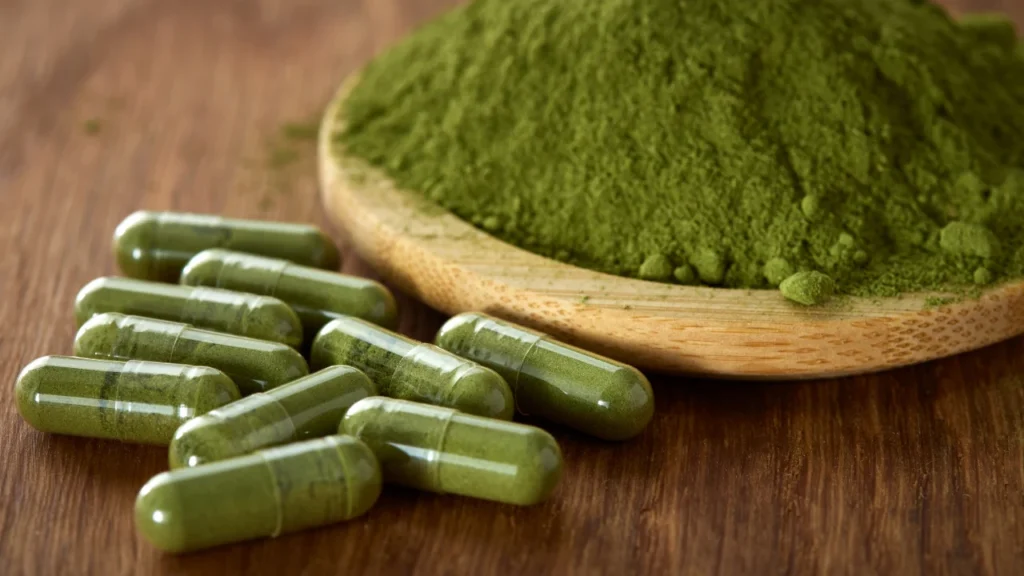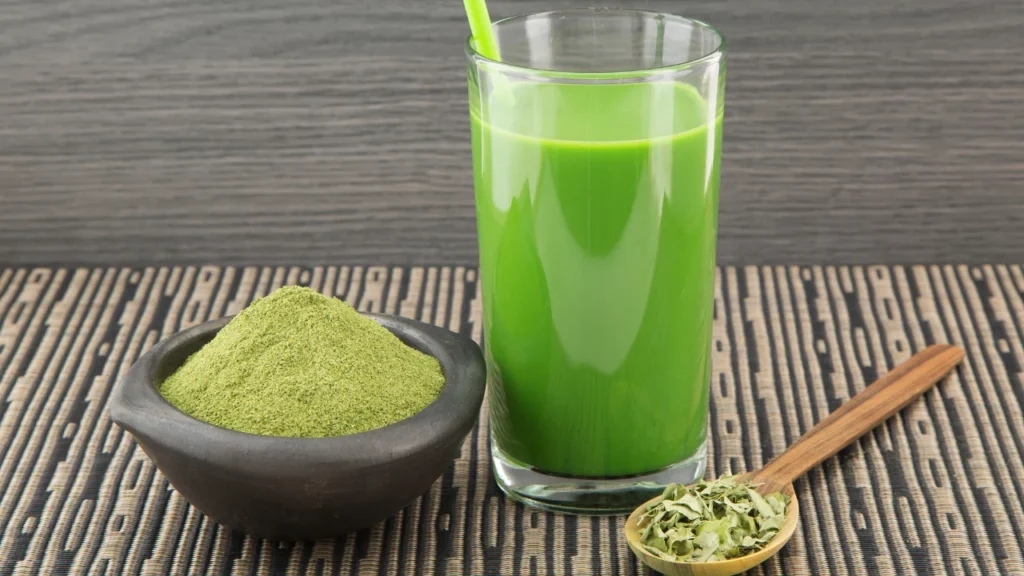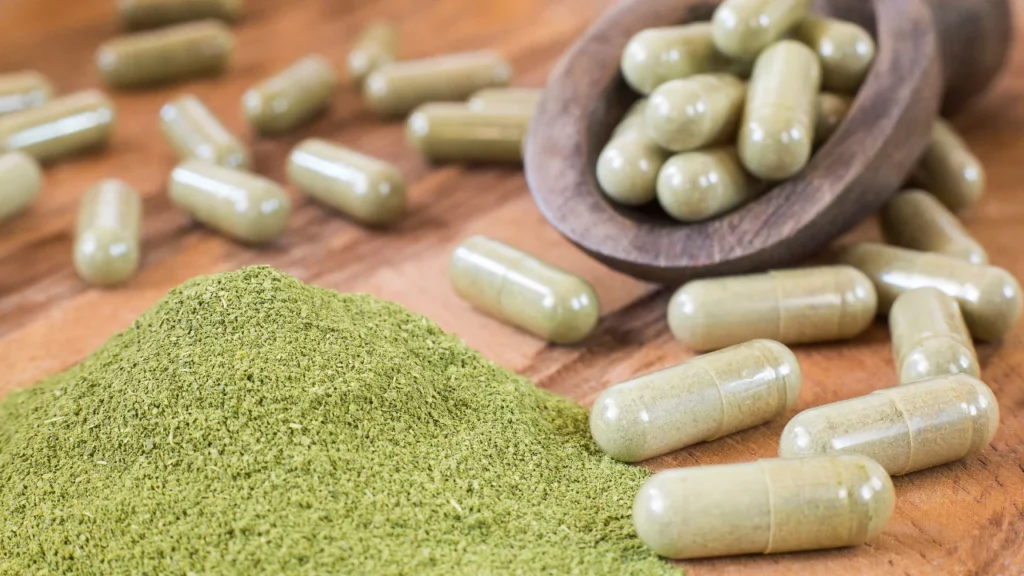The term “superfood” is frequently used in the context of health and wellness to refer to foods that provide the highest nutritional value for the least amount of calories. These superfoods are abundant in antioxidants, vitamins, and minerals. Moringa is one of those superfoods due to its remarkable nutritional makeup and health advantages. Moringa oleifera, usually known as just “moringa,” is a plant native to areas of Asia and Africa that is considered a superfood as well as a representation of sustainability, vigor, and health. This page explores the many uses of moringa in traditional medicine, as well as its nutritional value, health benefits, and other aspects.
Moringa A Superfood Offering Complete Nutritional Benefits is an original (News7Health) article.
You May Also Like:
Moringa: Miraculous Treatment for Hunger, Health Conditions, and Certain Deficiencies
Moringa: Proper Dosing and Consumption of this Superfood
Nutritional Profile of Moringa
The plant known as Moringa oleifera is indigenous to the Indian subcontinent and it has gained international recognition for its exceptional nutritional benefits. The leaves of the moringa tree are extremely nutritious and should be a main component in diets when malnutrition poses an issue. In addition to being high in vitamins and minerals, these leaves also have important amino acids, antioxidants, and other health-promoting substances.
Vitamins and Minerals
Moringa leaves are exceptionally rich in vitamins A, C, and E, which are crucial for maintaining eye health, supporting immune function, and protecting the skin. Vitamin A, or beta-carotene, is vital for vision, immune system strength, and skin health. Vitamin C is a potent antioxidant that aids in the prevention of chronic diseases and the maintenance of healthy skin, while Vitamin E protects against oxidative stress and supports overall health.
Furthermore, moringa leaves are an excellent source of calcium and potassium, essential for bone health and proper functioning of the heart and other muscles. Iron, which is pivotal for combating anemia and boosting energy levels, is also found in high amounts in moringa leaves. Additionally, with their high magnesium content, they help in the regulation of blood sugar levels and the maintenance of a healthy immune system.
Antioxidants and Anti-inflammatory Compounds
Among the most well-known advantages of moringa are its antioxidant qualities. Antioxidants that can help neutralize damaging free radicals in the body include quercetin, chlorogenic acid, and other flavonoids. By doing so, they reduce oxidative stress and minimize the risk of chronic diseases including diabetes and heart disease. In particular, quercetin is well known for being able to lower blood pressure.
Potent anti-inflammatory chemicals found in moringa leaves are called isothiocyanates. They are essential in lowering the body’s inflammatory response, which is linked to a number of chronic illnesses including diabetes, obesity, and heart disease.
Protein Content
For vegetarians and vegans, moringa leaves are a great source of protein because they contain all nine essential amino acids. Because moringa contains proteins, it aids in the maintenance of healthy skin and hair as well as muscle growth and repair.

Health Benefits of Moringa
The nutritional richness of moringa translates into a wide array of health benefits. The following explains how moringa can better improve your health:
Antioxidant Powerhouse
Moringa is very good at preventing oxidative stress. Oxidative stress is connected to chronic illnesses like type 2 diabetes, heart disease, and Alzheimer’s. This is because moringa contains an abundance of antioxidants that reduce inflammation and cellular damage by scavenging free radicals, promoting general health and lifespan.
Anti-Inflammatory Effects
Numerous health problems, such as respiratory disorders, arthritic diseases, and cardiovascular diseases, can be brought on by chronic inflammation. Moringa has anti-inflammatory qualities because of its isothiocyanates that help lower inflammation and related health risks. Thus, regular moringa use may help prevent and treat inflammatory illnesses.
Heart Health and Cholesterol
Studies have demonstrated that moringa can improve heart health by lowering cholesterol and preventing plaque buildup in the arteries. This promotes overall cardiovascular health in addition to reducing the risk of heart disease. The plant’s niaziminin components lower blood pressure and lower the risk of heart disease by preventing arteriosclerosis
Blood Sugar Regulation
Maintaining healthy blood sugar levels is crucial for overall health and the prevention of diabetes. Moringa has been found to help regulate blood sugar levels, thanks to its high content of chlorogenic acid and isothiocyanates. These compounds assist in managing blood sugar, making moringa a beneficial addition for people with diabetes or those at risk of developing the condition.

Digestive and Gastrointestinal Health
Moringa has long been used to support healthy digestive systems. Its leaves and seeds can help treat digestive issues and fight infections. Moringa is used in Ayurvedic medicine to treat digestive disorders such as ulcerative colitis, gastritis, and constipation. Moringa leaves include fiber, which supports healthy gut microbiota and facilitates digestion.
Skin Care and Wound Healing
Traditionally, moringa has been used to treat skin conditions and mend wounds. The oil produced from moringa seeds is a moisturizing and anti-aging substance that is high in antioxidants. It has been used to moisturize, protect against infections, and accelerate the healing of wounds on the skin.
Traditional Uses
Moringa oleifera’s reputation as a “miracle tree” or “tree of life” is not just a modern phenomenon. Its usage is deeply rooted in traditional medicine systems across the world. In Africa, its native continent, and other parts of the world, moringa has been used in traditional health practices to address a myriad of health issues, from malnutrition to chronic diseases.
Immune System Support
Traditionally, moringa has been utilized to strengthen the immune system. Together with other nutrients and antioxidants, its high vitamin C concentration boosts the immune system and aids in the body’s ability to fight off illnesses and infections. In conventional medical systems, moringa is frequently recommended to hasten the healing process and ward off subsequent illnesses during the recovery phase of illnesses.
The wide range of traditional applications for moringa bears witness to its effectiveness and adaptability as a therapeutic herb. These customs, which have been carried down through the ages, emphasize the benefits of moringa for both nutrition and health. It is great that these traditional uses are becoming more widely acknowledged and validated globally as science starts to understand the mechanics behind moringa’s health benefits. This strengthens moringa’s position as a potent superfood and medicinal plant.

How to Incorporate Moringa in the Diet
Moringa is a flexible addition to the diet frequently praised for its rich nutritional profile and health advantages. Including moringa in your daily regimen will greatly increase the amount of nutrients you consume, which will benefit your general health and well-being. Here are thorough explanations and useful advice on including moringa in your diet.
- Fresh Leaves: In regions where moringa grows, the fresh leaves can be used similarly to spinach or kale. They can be added to salads, soups, and stews.
- Dried Leaves: More commonly found in the global market, dried moringa leaves retain most of the nutritional value of fresh leaves. They can be ground into powder, making them easy to store and use.
- Moringa Powder: This is the most versatile form, ideal for incorporating into smoothies, juices, and teas. It can also be used as a seasoning in cooking.
- Moringa Seeds: Roasted moringa seeds can be snacked on or added to dishes for a nutritional boost.
- Moringa Oil: Extracted from the seeds, moringa oil is used for culinary purposes, similar to olive oil, and for topical application on skin and hair.

There are also examples of ways that you can incorporate moringa into your diet:
Smoothies and Juices
One of the simplest and most efficient methods to take advantage of moringa powder’s health advantages is to mix it into juices and smoothies. The mild flavor of the powder complements fruits and vegetables well, boosting the nutritional value of your beverage without taking away from other flavors.
Soups and Stews
You can add dried or fresh moringa leaves to stews and soups. They can serve as a wholesome alternative to other greens and cook up quickly. A mild peppery flavor added by moringa leaves enhances a variety of foods.
Salads
Fresh moringa leaves can make a nutritious addition to salads. They are best mixed with other salad greens, as their taste can be quite potent. Dried moringa leaf powder can also be sprinkled over salads as a dressing ingredient, mixed with olive oil and lemon juice.
Baking
Moringa powder can be incorporated into baked goods such as bread, muffins, and pancakes. Adding a tablespoon of moringa powder to your batter not only boosts the nutritional content but also gives your baked goods a distinctive green hue.
Seasoning
Moringa powder can be used as a seasoning for meats, vegetables, and rice dishes. It can be mixed into marinades or sprinkled on dishes before serving. Its subtle flavor enhances the taste of a wide variety of cuisines.
Tips for Incorporating Moringa
- Start Small: Begin with small amounts of moringa to see how you like it and to ensure it agrees with your digestive system.
- Quality Matters: Look for high-quality, organic moringa products to ensure you’re getting the best nutritional benefits without contaminants.
- Balance Your Diet: While moringa is highly nutritious, it should complement a balanced diet rather than be relied upon as the sole source of essential nutrients.
Creative Ideas for Incorporating Moringa into Daily Life
- Moringa Tea: Steep dried moringa leaves in hot water for a soothing herbal tea. Add honey or lemon to taste.
- Moringa Energy Bars: Combine moringa powder with nuts, seeds, dates, and coconut oil to make nutritious energy bars.
- Moringa Dressing: Mix moringa powder with olive oil, vinegar, mustard, and herbs to create a vibrant green salad dressing.
Incorporating moringa into your diet offers a straightforward way to boost your intake of essential nutrients, supporting overall health and wellness. With its versatility, it can easily become a staple in any kitchen, enriching daily meals with its potent blend of vitamins, minerals, and antioxidants.

Properties of Moringa
Nutritional Properties
- Rich in Vitamins and Minerals: Moringa leaves are packed with vitamins A, C, and E, calcium, potassium, and iron. They provide a concentrated source of vitamin A, vital for vision, immune function, and skin health, vitamin C for immunity and skin integrity, and vitamin E for its antioxidant properties.
- High Protein Content: The leaves are an excellent source of protein, containing all nine essential amino acids, which is uncommon for a plant source. This makes moringa particularly valuable in vegetarian and vegan diets.
- Antioxidants Galore: Moringa is loaded with antioxidants such as quercetin, chlorogenic acid, and beta-carotene. These compounds fight free radicals in the body, reducing oxidative stress and preventing cellular damage.
Medicinal Properties
Anti-inflammatory Effects: Moringa has significant anti-inflammatory properties due to the presence of isothiocyanates. This makes it beneficial for reducing inflammation in conditions like arthritis and respiratory disorders.
- Blood Sugar Regulation: Moringa has been shown to help lower blood sugar levels, which can be beneficial for people with diabetes or those at risk of developing the condition.
- Cholesterol Management: Consuming moringa can help lower cholesterol levels, thereby reducing the risk of heart disease.
- Protective Against Arsenic Toxicity: Some studies suggest that moringa leaves and seeds can protect against the effects of arsenic toxicity, although more research is needed in this area.
Antimicrobial Properties
- Fights Bacteria and Fungi: Moringa has antimicrobial and antibacterial properties, making it effective against the growth of pathogens such as bacteria and fungi. This has implications for treating infections and purifying water.
Water Purification
- Coagulant Properties: Moringa seeds act as a natural coagulant that can attach to impurities and sediment in water, causing them to settle to the bottom, which helps in purifying and clarifying water.
Environmental and Agricultural Properties
- Soil Improvement: Moringa contributes to improving soil health due to its deep root system and the ability to enhance soil fertility through the decomposition of its leaves and pods.
- Drought Resistance: The plant is highly resilient to drought conditions, making it a valuable crop in arid and semi-arid regions.
- Fast Growth: Moringa trees grow quickly, providing leaves and seeds that can be harvested multiple times a year.
Nutraceutical Properties
- Supports Weight Loss: Its high fiber content and low fat and calorie count can aid in weight loss and management.
- Boosts Energy Levels: Moringa is known for its ability to increase energy levels naturally without the jitters associated with caffeine.
Cosmetic Applications
- Skin and Hair Health: Moringa oil, derived from its seeds, is beneficial for the skin and hair, offering moisturizing, cleansing, and anti-aging benefits.
Moringa oleifera’s multifaceted properties make it a valuable addition to the diet and a potential component in the treatment and management of various health conditions. Its environmental benefits further underscore its importance as a sustainable crop with a role in improving agricultural practices and supporting ecosystems.

Potential Side Effects of Moringa
While moringa is celebrated for its nutritional benefits and medicinal properties, it’s important to be aware of potential side effects, especially when consumed in large quantities or by certain individuals. Understanding these potential side effects can help ensure that moringa is consumed safely and effectively. Here’s a detailed look at some of the potential side effects associated with moringa:
Digestive Issues
When ingested in excess, moringa leaves may cause constipation in certain people. An overconsumption of fiber possibly leads to gastrointestinal problems such as gas, diarrhea, and bloating. You can lessen these effects by increasing the consumption gradually and starting with tiny amounts.
Interactions with Medications
There have been reports of drug interactions with moringa. Due to its blood-sugar-lowering properties, it may interact with diabetes medications, causing hypoglycemia, or low blood sugar. In a similar vein, as moringa lowers blood pressure, it may interact with blood pressure drugs to cause an excessively low blood pressure reading. Before using moringa in their diet, people on medication should speak with a healthcare professional.
Antifertility Effects
Those who are attempting to conceive may find it concerning because there is some research suggesting that consuming moringa root and its extracts may have antifertility effects. Both male and female fertility may be hampered by the substances in moringa root. Hence, moringa root supplementation is often advised against in pregnant women.
Allergic Reactions
Though rare, some individuals may experience allergic reactions to moringa. Symptoms could include itching, swelling, or redness of the skin. Those with known allergies to plants in the Moringaceae family should be cautious when trying moringa for the first time.
Toxicity from Heavy Metals
Moringa plants can absorb heavy metals from the soil, such as lead, cadmium, and arsenic, which can be harmful if ingested in large amounts. Consuming moringa grown in contaminated soil could lead to heavy metal toxicity. It’s important to source moringa products from reputable suppliers who monitor and control for heavy metal content.
Immune System Suppression
While moringa is generally considered to boost the immune system, there is a theoretical concern that its immunosuppressive properties could affect individuals with autoimmune diseases or those taking immunosuppressive medication. However, this effect is speculative in nature and more research is needed to understand the implications fully.
Nutrient Overload
Moringa is rich in certain vitamins and minerals, such as vitamin A and iron. While beneficial, overconsumption may lead to an excess intake of these nutrients, which can be harmful. For example, too much vitamin A can lead to vitamin A toxicity which causes dizziness, nausea, and even liver damage in severe cases.

Moringa and Sustainable Agriculture
Although it is well known for its rich nutritional profile and several health advantages, Moringa oleifera is also a symbol of sustainability in the field of agriculture. The following shows how moringa supports reforestation initiatives, fights soil erosion, and promotes sustainable agriculture.
Rapid Growth and Resilience
Moringa is renowned for growing quickly. For instance, it can reach maturity in a matter of months after planting. Farmers and growers can collect leaves, pods, and seeds multiple times a year thanks to this quick lifecycle, which offers a steady supply of food and revenue. Furthermore, moringa is a highly valued crop in arid and semi-arid locations where food security is a major problem due to its resistance to difficult growth conditions including drought and poor soil quality.
Combating Soil Degradation
In many regions of the world, soil degradation is a serious problem that results in reduced agricultural output and the loss of arable land. Moringa is essential in the fight against this issue. Its extensive root system aids in soil stabilization and inhibits erosion, which is a major contributor to soil deterioration. Moringa trees can also increase soil fertility since their dropping leaves and pods break down and add organic matter and vital minerals to the soil. The growth of other plants and crops is aided by this natural fertilization process, which enhances the health and productivity of the agricultural ecosystem.
Supporting Reforestation Efforts
Moringa is a great choice for forestry initiatives because of its quick growth and adaptability, especially in regions that have been severely damaged by deforestation and desertification. Restoring biodiversity to damaged areas is facilitated by planting moringa, which also helps to restore tree cover. The trees help to restore the equilibrium of the ecosystem by giving a variety of birds, insects, and other creatures a place to live and feed. Furthermore, moringa trees contribute to efforts to mitigate climate change by sequestering carbon dioxide, which highlights even more of their advantages for the environment.
Agroforestry Practices
Agroforestry systems use moringa for sustainable farming. Combining trees with crops or livestock is known as agroforestry, and this method can result in more productive, diversified, and sustainable land-use systems. Planting moringa trees in pasturelands or next to crops will increase biodiversity, improve soil quality, and provide shade.
Water Conservation
Moringa’s drought-resistant nature makes it an excellent crop for areas with limited water resources. Once established, moringa trees require minimal water, relying on their deep root systems to access moisture deep in the soil. This characteristic makes moringa a key player in water conservation efforts, particularly in regions where water scarcity is a growing concern.

Future Research and Potential
The journey of moringa from a traditional remedy to a modern superfood underscores its remarkable versatility and potency. However, the exploration of moringa’s full potential is far from complete. Future research promises to unlock even more benefits and applications of this extraordinary plant, expanding its role in nutrition, medicine, and sustainable agriculture. Here’s a glimpse into the avenues for future research and the potential that lies ahead.
Nutritional Genomics
The way that the nutrients in moringa interact with human genes to affect health may become clearer with the advent of nutritional genomics research. Understanding the genetic underpinnings of the various ways that the chemicals in moringa impact individuals may help design tailored nutrition plans for illness management or prevention.
Bioactive Compounds
There are several bioactive chemicals in moringa, many of which are still being thoroughly studied. Future research is to identify and comprehend these molecules in order to learn more about their possible medicinal applications, modes of action, and health advantages.
Sustainable Crop Development
Research into increasing the sustainability and productivity of moringa farming is essential, as the world’s population is rising and climate change poses new difficulties to agriculture. Creating strains resistant to drought, adjusting planting methods for various climates, and raising yield and nutritional quality are a few examples of this.
Moringa as a Biofuel
Research on the possibility of moringa oil as a sustainable biofuel is quite interesting. It presents a viable option for the production of biofuel because of its high oil yield and capacity to flourish in unfavorable soil conditions. This renewable energy source could lessen reliance on fossil fuels.
Pharmaceutical Applications
Moringa has long been known for its medical benefits, but there is still more to learn, particularly about potential pharmaceutical uses. Studies on the antibacterial, antidiabetic, and anticancer effects of moringa may result in the creation of novel medications and therapies.
Addressing Global Challenges
Moringa’s importance in tackling global issues such as malnutrition, food security, and environmental degradation remains a critical topic of research. Its ability to survive in harsh environments makes it a valuable component for research.
Conclusion
In short, moringa is jam-packed with highly nutritious components such as vitamins A, C, and E, quercetin, chlorogenic acid, and many more. This high nutritional profile has caused moringa to be renowned as a superfood. Moringa is believed to be an antioxidant powerhouse that can effectively control your blood cholesterol levels, your blood sugar, and improve your heart and digestive health. It is very easy to incorporate this plant into your diet. This article has mentioned countless methods in which moringa can be incorporated into your daily meals. You have to remember that before incorporating this supplement, you need to understand its effects and be sure to talk to a doctor to guide you into creating a suitable supplemental routine for your needs.

References:
- Moringa Oleifera: An Updated Comprehensive Review of Its Pharmacological Activities, Ethnomedicinal, Phytopharmaceutical Formulation, Clinical, Phytochemical, And Toxicological Aspects. Retrieved from: https://www.ncbi.nlm.nih.gov/pmc/articles/PMC9916933/
- Nutritional Significance and Therapeutic Potential of Moringa Oleifera: The Wonder Plant. Retrieved from: https://pubmed.ncbi.nlm.nih.gov/34533234/
- Moringa Oleifera: A Food Plant with Multiple Medicinal Uses. Retrieved from: https://pubmed.ncbi.nlm.nih.gov/17089328/
Important Note: The information contained in this article is for general informational purposes only, and should not be construed as health or medical advice, nor is it intended to diagnose, prevent, treat, or cure any disease or health condition. Before embarking on any diet, fitness regimen, or program of nutritional supplementation, it is advisable to consult your healthcare professional in order to determine its safety and probable efficacy in terms of your individual state of health.
Regarding Nutritional Supplements Or Other Non-Prescription Health Products: If any nutritional supplements or other non-prescription health products are mentioned in the foregoing article, any claims or statements made about them have not been evaluated by the U.S. Food and Drug Administration, and such nutritional supplements or other health products are not intended to diagnose, treat, cure, or prevent any disease.


